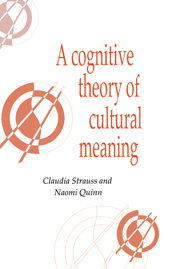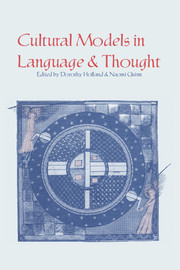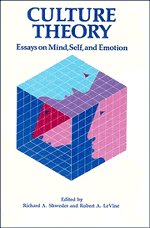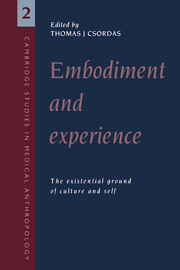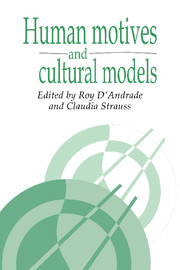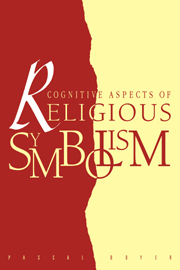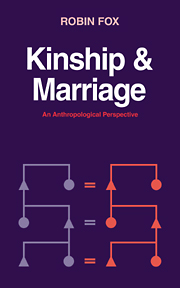A Cognitive Theory of Cultural Meaning
$36.99 (G)
Part of Publications of the Society for Psychological Anthropology
- Authors:
- Claudia Strauss, Duke University, North Carolina
- Naomi Quinn, Duke University, North Carolina
- Date Published: January 1998
- availability: Available
- format: Paperback
- isbn: 9780521595414
$
36.99
(G)
Paperback
Other available formats:
Hardback
Looking for an examination copy?
If you are interested in the title for your course we can consider offering an examination copy. To register your interest please contact [email protected] providing details of the course you are teaching.
-
"Culture" and "meaning" are central to anthropology, but anthropologists do not agree on what they are. Claudia Strauss and Naomi Quinn propose a new theory of cultural meaning, one that gives priority to the way people's experiences are internalized. Drawing on "connectionist" or "neural network" models as well as other psychological theories, they argue that cultural meanings are not fixed or limited to static groups, but neither are they constantly revised or contested. Their approach is illustrated by original research on understandings of marriage and ideas of success in the United States.
Read more- Relates arguments of book to work of Geertz, Bourdieu, and other major social theorists
- Demonstrates relevance of psychological anthropology to current concerns with self, ethnicity, gender, consciousness, meaning
- Explains connectionist modelling in a way accessible to anthropologists
- 'Cognition' is a big topic, increasingly being taken up by leading figures in anthropology e.g. Maurice Bloch, Dan Sperber, Stephen Levinson
Reviews & endorsements
"Strauss and Quinn's impressive book sets out a theory of culture that is both highly plausible and easily accessible to linguists. This is due in large part to the fact htat its approach is consistently synthetic, both in that it seeks to find common ground among different anthropological approaches to the much contested concept of culture, and in that the authors hope to build bridges between anthropology and other disciplines concerned with human thought and behavior...it constitutes a fascinating variant in the recent explosion of interdisciplinary research on the mind and brain. Linguists (and anyone else) with a broad interest in culture, cognition, or meaning will find the book well worth reading...the book is clearly written, well argued, and solidly supported by often fascinating micro-analyses of American culture." Anthropolological Linguistics
Customer reviews
Not yet reviewed
Be the first to review
Review was not posted due to profanity
×Product details
- Date Published: January 1998
- format: Paperback
- isbn: 9780521595414
- length: 336 pages
- dimensions: 229 x 153 x 23 mm
- weight: 0.65kg
- contains: 1 b/w illus.
- availability: Available
Table of Contents
Part I. Background:
1 Introduction
2. Anthropological resistance
3. Schema theory and connectionism
4. Two properties of cultures
5. Three further properties of culture
Part II. Practice and Possibilities:
6. Research on shared task solutions
7. Research on the pschodynamics of shared understandings
8. Research on cultural discontinuities
9. Beyond old oppositions.
Sorry, this resource is locked
Please register or sign in to request access. If you are having problems accessing these resources please email [email protected]
Register Sign in» Proceed
You are now leaving the Cambridge University Press website. Your eBook purchase and download will be completed by our partner www.ebooks.com. Please see the permission section of the www.ebooks.com catalogue page for details of the print & copy limits on our eBooks.
Continue ×Are you sure you want to delete your account?
This cannot be undone.
Thank you for your feedback which will help us improve our service.
If you requested a response, we will make sure to get back to you shortly.
×
